Last week a court sentenced Istanbul’s popular mayor, Ekrem Imamoğlu, to almost three years in prison and barred him from politics for allegedly insulting the judges in the Supreme Election Council (YSK) for their decision of canceling the mayoral election results in 2019. The decision comes six months ahead of the presidential and parliamentary elections in Turkey, and is widely regarded as Turkish President Recep Tayyip Erdoğan’s move to block Imamoğlu from running against him as the rival candidate.
It comes at a time when the opposition — composed of six political parties, referred to as the “Nation’s Alliance” or “Table of Six” — has been unable to agree on a joint candidate. The ruling galvanized the opposition into an exceptional show of unity, expressing support for Imamoğlu. It also led many to frame the decision as politicizing the judiciary and usurping the electorate’s will.
The ruling resembles Erdoğan’s “faux pas” from 2019, when the YSK canceled the initial local election and then Imamoğlu won the repeat election with an even larger margin. However, whether this recent court ruling will backfire on Erdoğan’s prospects of winning the upcoming presidential election will depend on the opposition reaching the necessary compromises and urgently finalizing the nitty-gritty details of preparing for a tough election, including announcing a joint candidate.
What happened?
At the March 2019 mayoral election in Istanbul, Imamoğlu, then a little-known local politician from the main opposition Republican’s People Party (CHP) defeated his rival, the candidate of the Justice and Development Party (AKP) Binali Yıldırım, by a small margin. Istanbul is where Erdoğan started his political career as mayor after he unexpectedly won the 1994 local elections. His mayorship was interrupted by a court conviction in 1998 for inciting religious hatred after reciting a poem. The conviction triggered popular support for him. His career then took off in earnest once his AKP won the national elections in 2002.
As the demographic and economic hub of Turkey, Istanbul came, personally and politically, to hold a special place for Erdoğan and was captured by his favorite line “whoever wins Istanbul, wins Turkey.” Hence, he simply could not accept losing Istanbul to Imamoğlu and instead got the YSK to rule for a repeat of the election on the basis of unproven AKP complaints of irregularities. The current court ruling resulted from a lawsuit against Imamoğlu for, allegedly, calling those who took the decision to re-run that election “stupid.” Imamoğlu has consistently claimed that the call was made during a heated exchange with the Interior Minister Süleyman Soylu and did not target the YSK judges. For the ruling to come into effect it still needs to be endorsed by a higher appeals court, which normally can take more than a year.
Another “faux pas” from Erdoğan?
Turkey and Erdoğan have a long record of using the judiciary to settle scores with political rivals. Selahattin Demirtaş, former co-leader of the Kurdish dominated People’s Democracy Party (HDP), has been in prison since November 2016 on rolling lawsuits, despite rulings from the European Court of Human Rights and Turkey’s own supreme court for his release. All because in June 2015 election his party won 13% of the national votes and caused the AKP to lose its majority in the parliament, drawing Erdoğan’s anger. Demirtaş continues to enjoy influence over the Kurdish electorate at a time when HDP votes are generally recognized as likely to be the tiebreaker in the upcoming presidential election.
Similarly, Canan Kaftancıoğlu, as the out-spoken critic of Erdoğan and former head of CHP’s Istanbul branch, as well as the co-architect of Imamoğlu’s victory in Istanbul, was given a suspended five-year prison sentence on charges of insulting Erdoğan and barred from competing in the upcoming parliamentary elections. As noted by a journalist and a commentator on Twitter, it would not be surprising if the appeal of Imamoğlu’s sentence is brought to a speedy conclusion to block his chances of running in the upcoming elections.
Erdoğan and his ally Devlet Bahçeli, leader of the National Movement Party (MHP), have abundantly made it clear that they would prefer to see Kemal Kılıçdaroğlu, the leader of the CHP, as the joint candidate of the “Table of Six.” They see Kılıçdaroğlu as easier to defeat for numerous reasons. He belongs to the Alevi minority religious group in Turkey. Despite Erdoğan’s declarations that all Turkish citizens are equal, Alevis have long faced discrimination, and Erdoğan has at times employed divisive language against them for political gain. It is assumed that some voters of Sunni identity would refrain from voting for him. Furthermore, unlike Imamoğlu and the CHP mayor of Ankara Mansur Yavaş, Kılıçdaroğlu has never won any elections. In polls, he rarely scores better than Erdoğan, unlike the two popular mayors. Erdoğan also likes singling out Kılıçdaroğlu’s limited experience in public office as an impediment to his ability to govern effectively.
The “Table of Six” has postponed announcing a common candidate to early 2023, as Kılıçdaroğlu’s ambition to be this candidate continues to meet resistance. There are concerns over his chances of winning a contest against Erdoğan. This concern, though not openly stated, is displayed by the leader of the IYI Party, Meral Akşener, who rushed from Ankara to Istanbul immediately after the court ruling to show her solidarity with Imamoğlu during the evening rally protesting the court ruling. The issue of electability inevitably leads to Imamoğlu’s name being brought up as the more popular and more likely candidate to win against Erdoğan. His ability to relate to a wider spectrum of ordinary people, including conservatives, together with his strong will and political ambitions are considered more of a match to a “political fox” like Erdoğan.
Not so easy
However, it is not evident that Kılıçdaroğlu is willing to leave the stage to Imamoğlu. He pushed aside the criticism that it was a major mistake for him to travel to Berlin on the day of Imamoğlu’s court case and miss the initial rally called for by Imamoğlu. Kılıçdaroğlu did not admit to such a mistake, but did interrupt his trip and returned to Istanbul in time for a follow-up rally attended by the “Table of Six” partners, in a rare show of unity before a crowd of 200,000 people, according to one estimate. In his rally address, Kılıçdaroğlu made it clear that he preferred to see Imamoğlu continue to serve as mayor. Subsequently, Imamoğlu in an interview supported the candidacy of his party boss Kılıçdaroğlu. However, he seemed to leave the door somewhat open when he added, “But the decision lies with the Table of Six.”
Yet, if Imamoğlu were to be chosen as the common candidate of the opposition there would always be the danger of a hurried appeal process that would bar Imamoğlu from running in the presidential election with weeks, if not days to go, and prevent him from taking up his post. Erdoğan’s assurances that the Turkish judiciary is independent, and the appeal process would be decided on the merit of the case, is hard to believe. It would not be surprising if the final judicial ruling served Erdoğan’s political priorities. It is true that Erdoğan’s experience of interfering with local elections in Istanbul in 2019 cost him dearly, and that there is a likelihood that the current situation could trigger a similar reaction from the electorate. Such a possibility has been flagged by numerous AKP personalities. In a recent poll close to 29% of AKP voters and almost 40% of MHP voters thought that the case against Imamoğlu was political.
However, for such interference to damage Erdoğan, the “Table of Six” would need to move into high gear. The joint candidate issue would need to be resolved speedily to prevent it from sapping energy away from winning the electorate’s hearts and minds. The failure to resolve the candidate issue is partly why the opposition in recent months has steadily lost ground in polls to Erdoğan’s AKP and governing coalition. It projects an image of disunity and incompetence.
Early commitment from the “Table of Six” to end Erdoğan’s one-man rule with a “strengthened parliamentary system” appears abstract and distant, especially in a country where the media is heavily controlled by the government and does not permit open debate. The opposition must weave their common vision into a narrative that offers solutions to Turkey’s serious economic problems, and helps the electorate imagine a promising future. Furthermore, the “Table of Six” still has not announced a plan to ensure the security of the ballot boxes and the ballot counting process, or explained how they intend to share power if they win.
Conclusion
Erdoğan’s latest blunder is likely to swing public opinion toward the opposition. Yet, it is too early to claim that it signals the collapse of Erdoğan’s 20-year reign, as claimed by a prominent and seasoned Turkish commentator. Ultimately, the outcome of Turkey’s June 2023 elections will depend on the opposition’s ability to make the most of Erdoğan’s recent “faux pas.”
The Brookings Institution is committed to quality, independence, and impact.
We are supported by a diverse array of funders. In line with our values and policies, each Brookings publication represents the sole views of its author(s).

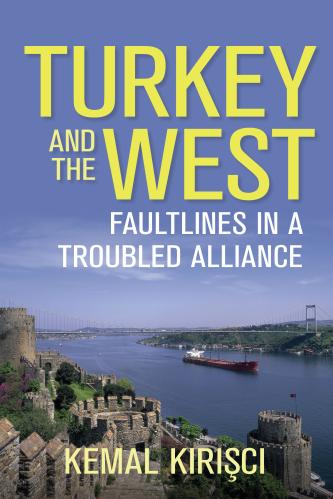
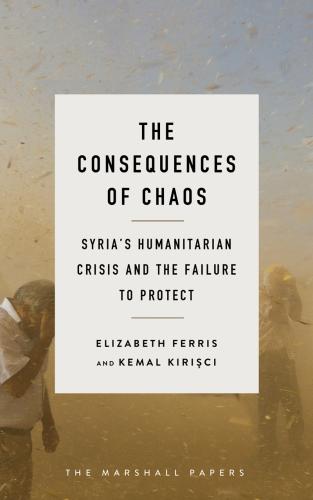
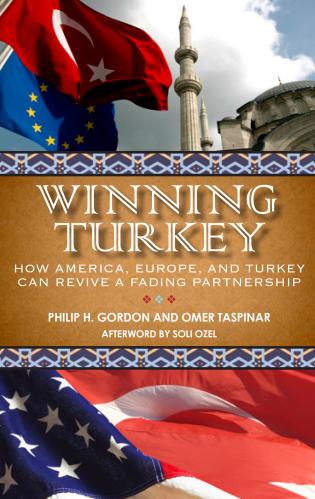
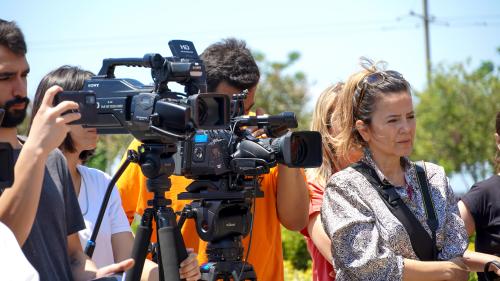
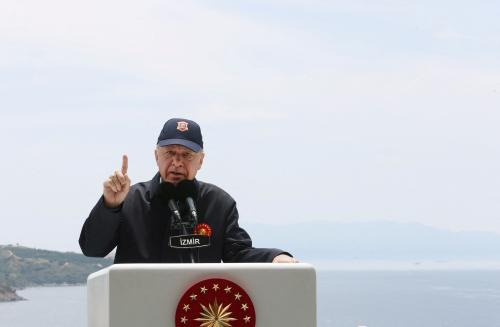
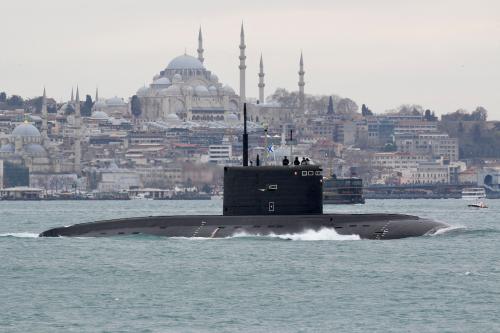




Commentary
As a Turkish court bans Istanbul’s mayor from politics, has Erdoğan miscalculated?
December 21, 2022